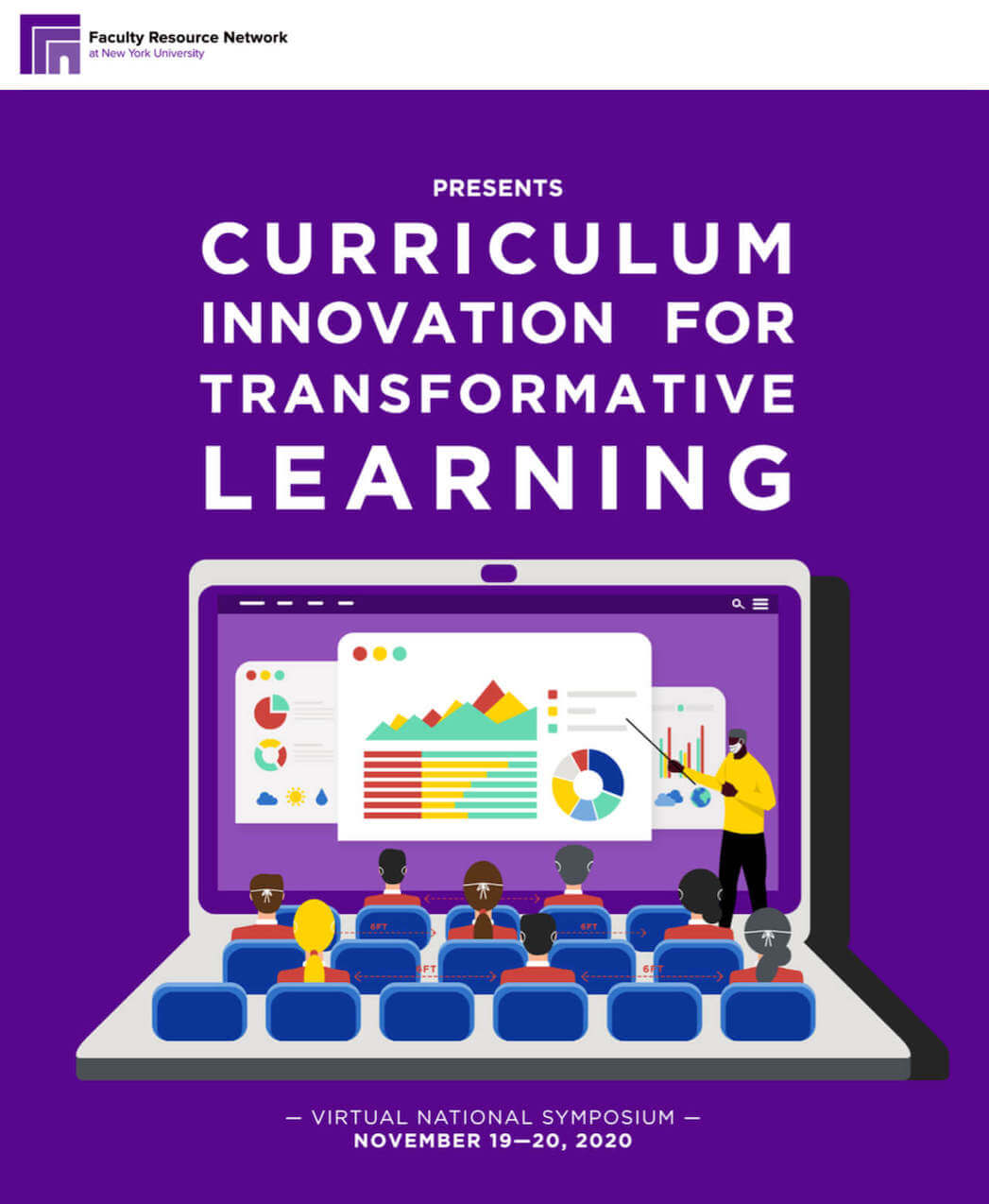Virtual Symposium
Symposium Overview
Today’s colleges and universities have a responsibility to prepare students to enter and thrive in a complex, multifaceted, globalized society. What curriculum innovations do we need to enact at our institutions to prepare our students for success after graduation? One increasingly pervasive societal trend is the growing impact of data science on our lives. Every website visit and social media post can be tracked and mined for commercial or political advantage. Personalized DNA testing has … Show more
Today’s colleges and universities have a responsibility to prepare students to enter and thrive in a complex, multifaceted, globalized society. What curriculum innovations do we need to enact at our institutions to prepare our students for success after graduation? One increasingly pervasive societal trend is the growing impact of data science on our lives. Every website visit and social media post can be tracked and mined for commercial or political advantage. Personalized DNA testing has created a new trove of genetic data that can be used for tracing our biological ancestry or cracking unsolved crimes. Data science has the potential to reduce inefficiencies, boost economic growth, and create new job opportunities. Yet these advantages must be balanced against the potential costs of sacrificing our privacy in the pursuit of technological advancement. What type of curriculum reform will help our students understand and adapt to the rapid changes in our data-driven world?
Climate change is another contemporary challenge that transcends geographical and disciplinary boundaries. According to a September 2019 survey, more than 7 in 10 teenagers and young adults believe that climate change will cause harm to people in their generation. Frustrated by the slow progress of legislative change, an increasing number of youth are taking action to bring attention to the earth’s changing climate. Yet the same survey reveals a decrease in the number of teenagers who report learning about climate change in school. How can colleges and universities respond to this educational need by providing climate literacy across the curriculum?
These examples illustrate suggest that the curriculum of the future needs to embrace interdisciplinary innovations. Yet our colleges and universities are still based on a 19th century model of academic departments and majors, which determine faculty appointments and the granting of degrees. These departmental constraints often can impede the intellectual flexibility required to address 21st-century concerns. Key educational benefits can arise from enlarging our perspectives. The STEM disciplines are embracing the arts to become STEAM. The literature curriculum has expanded beyond the Western canon to incorporate global perspectives from more diverse authors, together with insights from cultural studies. What other curriculum changes can we imagine that stretch beyond the traditional disciplines of the academy?
Curriculum innovations are not an end in themselves; their ultimate goal is to help students learn. With advances in neuroscience and psychology, we are gaining greater insight into how students learn and what can be done to make learning “stick.” The new brain science has reinforced what all good teachers know—that meaningful learning happens when students are actively engaged in critical and creative thinking coupled with thoughtful reflection and regular review. This convergence of research and practice provides us with the impetus to reexamine our course curricula and ask ourselves whether our lessons and activities prioritize student learning. What principles and practices of curriculum design can we employ to enable the students in our classes to become independent, life-long learners?

Spring 2021 Journal
Presentations
Presentations
Amanda S. Harper-Leatherman, Fairfield University
Linda N. Roney, Fairfield University
Iliana Ballester-Panelli, Universidad Del Sagrado Corazón
Alba Brugueras-Fabre, Universidad Del Sagrado Corazón
Chiara De Santi, Farmingdale State College, SUNY
Michael Finetti, Saint Peter’s University
Jay Garrels, Saint Peter’s University
Sheila T. Gregory, Clark Atlanta University
Anthony Joseph, Pace University
James P. Lawler, Pace University
Arun Yegnaseshan, Pace University
Sven-Ole Andersen, University of Puerto Rico
Renee Evans, University of Miami
Amanda Valdespino, University of Miami
Alice E. Stephens, Clark Atlanta University
Rosalee Martin, Huston-Tillotson University
Erwin Cabrera, Farmingdale State College
Lisa Cullington, Farmingdale State College
Beverly Kahn, Farmingdale State College
Kate Winter, Outside Evaluator
Jeff Gaab, Farmingdale State College
Richard Vogel, Farmingdale State College
Rhonda N. McCoy, Paine College

